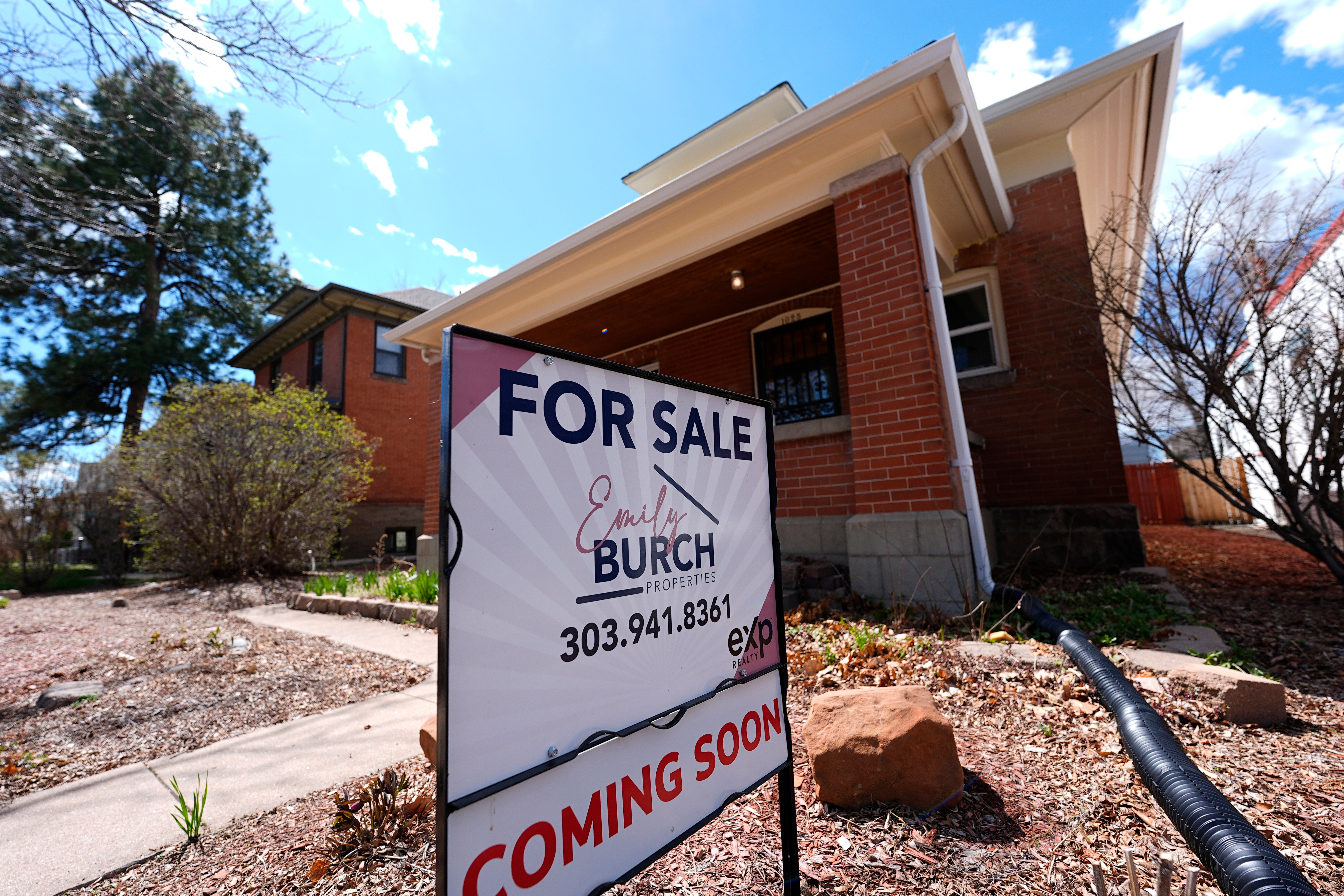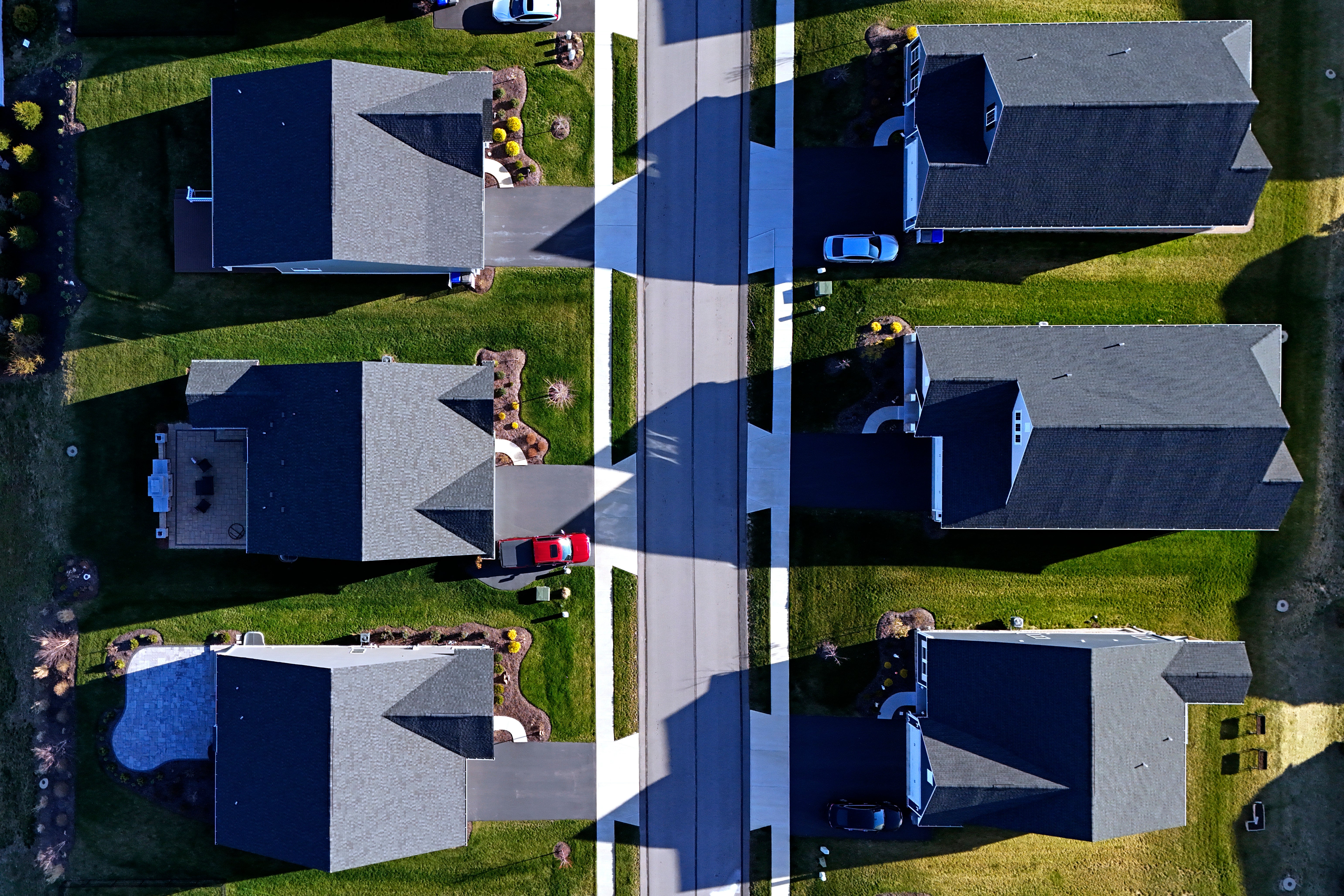Zero-down mortgages are back sparking fears of being the new subprime loans which caused the 2008 market crash
Professor Jonathan Adams said the zero-down loan program has “all the features that made subprime bad.”

Your support helps us to tell the story
From reproductive rights to climate change to Big Tech, The Independent is on the ground when the story is developing. Whether it's investigating the financials of Elon Musk's pro-Trump PAC or producing our latest documentary, 'The A Word', which shines a light on the American women fighting for reproductive rights, we know how important it is to parse out the facts from the messaging.
At such a critical moment in US history, we need reporters on the ground. Your donation allows us to keep sending journalists to speak to both sides of the story.
The Independent is trusted by Americans across the entire political spectrum. And unlike many other quality news outlets, we choose not to lock Americans out of our reporting and analysis with paywalls. We believe quality journalism should be available to everyone, paid for by those who can afford it.
Your support makes all the difference.A new “zero-down” mortgage program has sparked concern of fueling another housing bubble given its similarities to the disastrous subprime loans that contributed to the 2008 housing market crash.
The programs, announced two weeks ago and offered by United Wholesale Mortgage, allow qualified borrowers to receive up to $15,000 in down payment assistance.
The interest-free loan program does not require monthly payments and aims to “help more borrowers become homeowners without an upfront down payment,” the company said.
However, experts have warned that the programs – which, according to company, have already proved incredibly popular – could backfire on homeowners should the US housing market begin to cool, and prices begin to drop.
To qualify for the loans, borrowers must be at or below 80 percent of the Area Median Income for the property they are buying, or one borrower must be a first-time homebuyer.
The assistance loan, given as a second lien, offers flexibility in repayment and must be paid in full by the end of the loan term or when the first lien loan is paid off - for many homeowners, that would be at the end of 30 years of paying their mortgage.
“UWM’s 0% Down Purchase program is going to change the game this purchase season,” UWM chief executive Mat Ishbia said.

“No other wholesale lender in the country is offering this, meaning independent mortgage brokers now have a significant advantage with consumers and real estate agents. Thousands of borrowers are sitting on the sidelines because they don’t have a downpayment – this program removes that barrier.”
However, one of the risks of prospective homeowners paying no down payment, is that they will begin with no home equity – i.e the current market value of a home, minus any liens such as a mortgage.
Should house prices begin to drop, borrowers could find themselves owing more than the home is worth on repayments. This could lead to a failure to comply with the mortgage terms, known as being in “default.”
Further problems could arise if the homeowner needs to sell the property quickly, but are unable to repay the second mortgage.
Patricia McCoy, a professor at Boston College Law School and former mortgage regulator, told CNN that scenario is “exactly what happened” during the subprime crisis, when millions of homeowners were unable to make payments and went into default.
The housing bubble that popped around 2006 was fueled in part by a boom on the amount of subprime mortgages, and adjustable rate mortgages being offered.
A subprime mortgage is generally a loan that is meant to be offered to prospective borrowers with impaired credit records. The higher interest rate is intended to compensate the lender for accepting the greater risk in lending to such borrowers.

Jonathan Adams, an assistant professor at Saint Joseph’s University teaching real estate finance, said the zero-down loan program has “all the features that made subprime bad,” noting that those who qualified for the program are likely to suffer when home prices are falling.
“One of the lessons of the subprime crisis was that you are not doing any favors to borrowers by making it too easy to borrow,” Adams told CNN.
The company rejected the concerns over potential fallout from its programs, saying that borrowers must still go through strict underwriting guidelines.
“People who make these claims are uneducated about the current state of the industry,” Alex Elezaj, the company’s chief strategy officer, told CNN. “In today’s environment, UWM is responsible for underwriting the loan, which gives us confidence that these are high quality loans.
“This is a huge positive. It’s helping consumers and is a great win across the board.
“Think about all the people who are renting and would love to buy a house, but they face this roadblock of coming up with $10,000 or $15,000 for a down payment. This eliminates that.”
Join our commenting forum
Join thought-provoking conversations, follow other Independent readers and see their replies
Comments